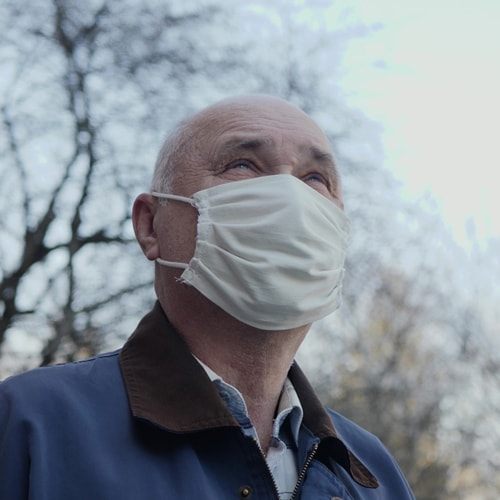During the COVID-19 crisis, many older patients have not been able to access their regular dental check-ups and preventive care, especially if they have been shielding and staying at home because they are vulnerable. Together with other changes in habit and routine, this could result in increased risk for dental caries. However, there are some solutions to help dental professionals manage this risk and help prevent problems from occurring during the crisis.
Older individuals in general are at increased risk for caries. Risk factors for these individuals include reduced manual dexterity, xerostomia and more severe xerostomia as a result of systemic diseases and polypharmacy, and reduced cognitive abilities. In addition, root caries is most prevalent in older individuals with exposed root surfaces which are vulnerable to demineralization. Elderly individuals are also more likely to have to rely on caregivers to help them with oral hygiene or to perform their oral hygiene. Implementing prevention measures, such as the prescription of this toothpaste, should therefore be considered.
One of the major recommendations that has been shown to help prevent and in some cases reverse dental caries, is use of a high concentration paste or gel containing 5,000 ppm fluoride, such as Colgate Duraphat 5000 ppm toothpaste or Colgate PreviDent 5000 toothpaste. Studies by Baysan and Ekstrand have shown that use of this toothpaste has halted the progression of root caries and promoted its reversal. The study by Baysan et al compared the efficacy of this 5,000 ppm fluoride toothpaste to that of a regular fluoride dentifrice in reversing root caries, whereas in the study by Ekstrand et al brushing was performed by caregivers for elderly patients and compared use of 5,000 ppm toothpaste with a regular fluoride dentifrice. In both studies, the use of 5,000 ppm fluoride toothpaste was significantly more effective in reversing root caries than standard fluoride concentrations (1,100 ppm and 1,450 ppm fluoride, respectively).
The American Dental Association recommends toothpaste containing 5,000 ppm fluoride as one of the measures we can implement in the non-restorative treatment of dental caries. In addition, specifically for the arrestment and reversal of root caries, the ADA recommends the use of 5,000 ppm fluoride toothpaste or gel over all other available options. At a time when many of our older patients are not physically coming into the dental office for preventive care, it is important to make sure that our patients can receive as much preventive care at home as possible to help prevent and reverse dental caries.
Some older patients might feel apprehensive about using another prescription product or changing their routine, or see this as an uncomfortable admission that they require additional help. When explaining the benefits of 5,000 ppm toothpaste to patients, I like to explain the benefits in a relatively straightforward way and to emphasize that this toothpaste really can help to prevent future problems. If the patient has a caregiver, I also explain this to the caregiver first and engage the caregiver further in supporting our older patient with their daily oral care routine. This can be as simple as gently reminding the patient to brush their teeth, or in some instances supporting them with the delivery of their oral care.
In this difficult time when many of our older patients might be avoiding accessing a dental visit, it is of increased importance that we provide proven home care preventive measures, such as daily use of Colgate PreviDent 5000 (Colgate Duraphat) to help prevent, arrest and reverse dental caries.


Was this article helpful?
If you’d like a response, Contact Us.